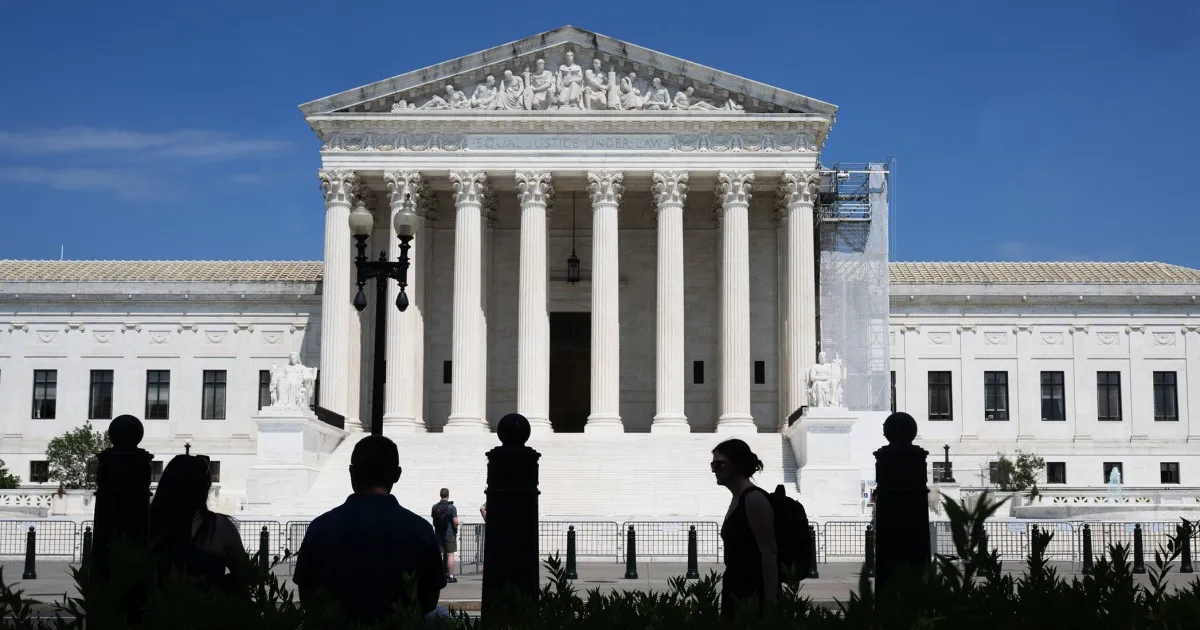
On Monday, the Supreme Court granted the Trump administration permission to revoke special legal protections for thousands of Venezuelan immigrants, potentially opening the door for their deportation. This decision follows an emergency application filed by the administration, enabling officials to proceed with reversing a prior ruling made at the end of the Biden administration that had extended protections for over 300,000 Venezuelans under the federal Temporary Protected Status (TPS) program.
The brief order from the Supreme Court indicated that Justice Ketanji Brown Jackson, a liberal member of the court, would have denied the application. As a result of this ruling, ongoing litigation will continue in lower courts, leaving many Venezuelan immigrants in a state of uncertainty regarding their status in the United States.
Due to the ongoing political instability in Venezuela, the Biden administration announced in March 2021 that Venezuelans were eligible for temporary protected status under the TPS program, which has been in place since 1990. This humanitarian relief program is designed to assist individuals from countries experiencing war, natural disasters, or other catastrophic events. Those accepted into the TPS program receive legal status in the U.S. and can obtain work authorization for up to 18 months, with the possibility of extensions.
The Supreme Court's consideration centered around a subsequent designation made in October 2023, which was extended in January just before Donald Trump assumed office, and is scheduled to expire in October 2026. However, in February, Homeland Security Secretary Kristi Noem sought to unwind these determinations, proposing that the protections would instead expire this year. U.S. District Judge Edward Chen of California intervened, blocking Noem's move, citing concerns that the decision may have been influenced by racial bias.
Judge Chen's ruling emphasized that the affected immigrants could face imminent deportation if Noem's plan were to take effect. In the emergency application submitted by Solicitor General D. John Sauer, the Trump administration argued that the courts lacked the authority to review Noem’s decision. Sauer contended that “the court’s order contravenes fundamental executive branch prerogatives and indefinitely delays sensitive policy decisions in an area of immigration policy that Congress recognized must be flexible, fast-paced, and discretionary.”
The move to challenge the administration's actions was spearheaded by the National TPS Alliance and individual Venezuelan immigrants. Their legal team argued that the Trump administration was attempting to evade judicial review over the extent of its powers. They highlighted that if Noem's plan were enacted, it could lead to significant job losses and mass deportations to a country that remains unsafe.
The Supreme Court's recent ruling comes just three days after the court ruled against the Trump administration on another significant aspect of its strict immigration policy. In a separate case involving Venezuelan detainees, the court determined that the administration must provide immigrants a genuine opportunity to contest their deportation under the Alien Enemies Act, a wartime law. This ruling underscores ongoing tensions and legal battles surrounding U.S. immigration policy, particularly concerning vulnerable populations like Venezuelan immigrants.